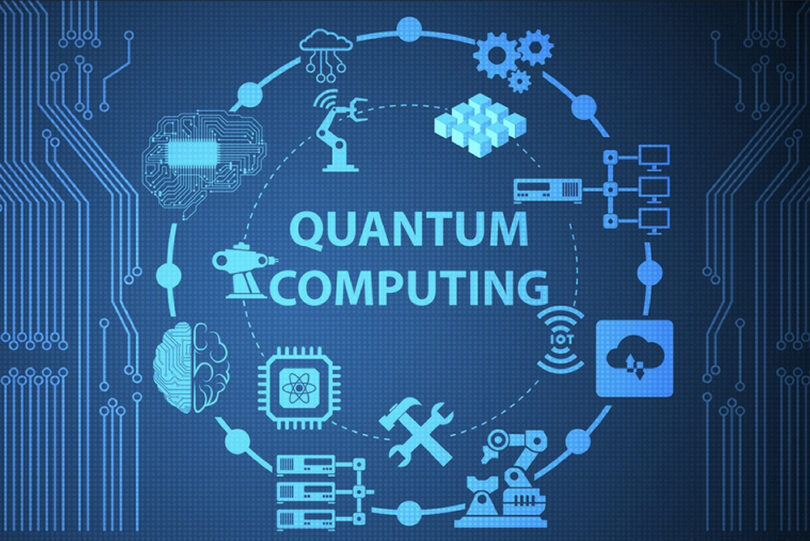Quantum computing technology is completely different from traditional computers in its approach to computation compared to conventional computing. Rather than bits it employs qubits: digital storage elements that can be 0, 1, or both at once – a concept known as superposition. This allows quantum computers to look at many outcomes at once, making them very useful in certain problems that ordinary computers would need years to solve.
Imagine searching a maze. The generic representation that would be used by a normal computer is a loop that goes through each path to check all the paths individually. Advancements in quantum computing technology might attempt each path at once – the solution to escape would be arrived at much more swiftly. This especially applies to disciplines such as pharming, materials chemistry, and quantitative finance.
However, advancements in quantum computing technology remain a work in progress even though has gained a lot of traction among individuals. Maintenance of these machines and structures is not easy and doesn’t come cheap. Although they have a lot of potential, they can neither completely supersede conventional computers but will be able to work in synergy with them to solve problems that were hitherto deemed intractable.
Demystifying Quantum Computing: The Physics of Qubits and Gates
Gate-based quantum computing operates on five core principles:
Programming with Quantum Gates: As in the case of classical computers that make use of logic gates so do quantum computers make use of quantum gates to manipulate information stored in qubits the quantum version of bits.
Superposition: Other than binary state: Unlike normal bits which have specifically two values of either 0 or 1, qubits have a state referred to as superposition or both the values at the same time. It is quite like a coin rotating in the air; it is both heads and tails at the same time until it finally lands and decides which side it takes. This ability to be in two or more states at once is the key to the operation of quantum computers.
Measurement and Probability: In this case, the state of a qubit that was entangled is read off and its information content collapses to a single bit, state 0 or state 1. However, due to superposition, we might need to repeat this process many times to obtain a statistical picture which is in general cumbersome. This means that any value between 0 and 1 can be expressed; for example, repeated tossing of the weighted coin to determine the chance of getting a heads up.
Interference: Quantum is one of the most astonishing forms of information that behaves like a form of a wave. A few applications of advancements in quantum computing technology in quantum gates include being able to construct or destructively interfere, which is not achievable in a classical computer. This creates room for new algorithms such as Grover’s search which involves the use of interference to search for all the possibilities at once and enhance the right answer.
Entanglement: The Spooky Connection: Special gate operations can create entanglement between the qubits, that is, they share correlations that are unexplainable by local hidden variables. In this state, the Jin Satoshi and the other qubits get connected, and an action taken on one impacts the other no matter the distance. Just picture two coins connected with an invisible string and whenever one of those coins turns over, the other one does right away too. In other words, entanglement enlarges the capacity of entangled qubits exponentially in contrast to single qubits, enabling higher growth of computational potential.
These concepts form the basis of fault-tolerant gate-based advancements in quantum computing technology, which is the most generalized aim at the time of writing. Altogether, these principles form an extremely effective set that enables people to employ information interaction on an unprecedented level. However, as with most tasks that involve concept formation, this may take time, but advanced research does provide hope. Quantum computers have also started demonstrating “quantum usefulness,” besting high-performance computers (HPCs) in some chemistry applications.
Unveiling the Potential: Applications of Quantum Computing
Don’t associate quantum computing with quantitative analysis; it is much more about solving tasks conventional computers simply cannot handle. Here are some exciting potential applications across various fields:
Drug Discovery: Molecular simulations involve the molecular modeling and simulations of various molecules that can help speed up the development of new drugs that can target certain molecules. It is established that through analysis of large chemical databases, quantum computers can flag potential drugs more effectively.
Materials Science: Thus it becomes possible to design new materials with specific properties, as wished for in some applications. Simulating mate real at the atomic level can result in dramatic advances in subject matters such as superconductors, batteries, and ultra-light, yet ultra-strong metal alloys.
Financial Modeling: Machine learning algorithms would involve solving more complex financial data problems through quantum models. It has the potential to bring significant changes to risk management and improvement of portfolios.
Cryptography: Some of the present day’s cryptographic methods might one day be breakable by quantum computers but then again, quantum technology is already being used to provide new and superior methods of cryptography.
Logistics and Optimization: It means that it is ideal for solving logistical issues, which require a large amount of data, calculations of the delivery routes, scheduling, and distribution of resources in various fields, using the help of the quantum computer.
These are just a few examples of vague promises that game developers make to Microsoft. Specific fields that can be impacted by quantum and AI include artificial intelligence and machine learning, as well as weather forecasting. However, it is crucial to realize that at the current state, the given technology is still relatively young. That being said numerous applications are possible today but for the most part, the technology remains in the realm of research and experiment. The quest to get to the next level of quantum computing is promising, and the world can reap enormous benefits from a range of breakthroughs, including in areas affected by quantum limitations like cryptography.
The latest developments in quantum computing
As we stand on hand on foot what quantum computing can bring to us, here are a few developments made in quantum computing.
Teleportation Triumph: The scientists were able to enhance nearly perfect quantum teleportation of particular quantum information whereas a major challenge lies in the noise affecting the fragile quantum state during information transfer. For potential large-scale quantum networks in the future, this breakthrough contributes to enhancing the security and reliability of these networks.
Silicon Supremacy Race Heats Up: However, there is no question that any attempt at constructing useful quantum computers must in the end settle down to finding more stable and scalable forms of qubits. Some scientists have been successful in their attempt to manipulate the magnetic moments in the 2D van der Waals magnets that matter is just a single layer thick. It opens a promising avenue into fabricating ‘trapped’ quantum bits from familiar silicon resources, implicitly posing a boost to large quantum computation enterprises.
Photon Powerhouse: However, numerous studies aim at exploring other types of qubits such as superconducting qubits; another category of qubits is photonic qubits – those that use light particles. A recent advancement demonstrates the accomplishment of the largest photon qubit quantum computer ever created, known as the ‘Jiuzhang 3. 0’ featuring 255 photons. This advancement shows that hardware design in photonic architectures may one day hold the key to quantum computation.
AI Assists Quantum Development: The values are normalized because of the uniqueness of quantum systems that complicates the aspect of realizing the best-optimized performance. Some authors have investigated the benefits of using artificial intelligence (AI) to help in this task. One new study shows the application of various machine learning methods in detecting and mitigating errors in quantum hardware, opening up the possibility of improved quantum computation.
These advancements explained here capture the different strategies that have been taken to address some of the issues that define quantum computing. From breaking language barriers to expanding the horizons of qubit applications and incorporating AI in the process, researchers are striving for the best in this revolutionary field. The future of quantum computing is promising in regards to delivering more insights in different fields.
Peek into the future: Future applications of Quantum computing
Quantum computing has a lot to feed us in the modern day, so what more can it provide us in the future?
- Revolutionizing Drug Discovery: Quantum computers could speed up the progression of struggle-saving medications due to they can reproduce solid particles, and their process, molecule-for-molecule. They may also be able to contribute to the design of new medications with even better outcomes and fewer side effects if they consider a plethora of factors and their interplay. Drug-resistant organisms suggest that curing diseases such as cancer or Alzheimer’s with drugs for individual inherited genes may be an ideal system.
- Unlocking New Materials: It appears to be an ideal world where ideals for materials with specific properties, which have not been possible to achieve, are now realizable. Quantum computers can theoretically simulate real materials and their properties at the atomic level, which can lead to the creation of better materials through means such as strengthening, lighter, or more efficient ones. This may result in discoveries such as new materials for the magnetic transporter or aeronautic containers, Batteries for electric cars, or even planes that are lighter than air.
- Optimizing Financial Modeling: There are significant concerns with fundamental data and the social and economic structures of financial markets. Specifically, quantum algorithms could process these datasets with great speed and precision, which would contribute to better management of risks, enhancements in the formulation of investment policies, as well as to the creation of less fluctuating financial markets.
- Unbreakable Encryption: Although some of the standards currently in use in the computer world can be cracked by the future quantum computers the technology propounds a way to invent new algorithms which cannot be decrypted. This can be a reality given the recent breakthroughs in the transportation of quantum information securely over long distances which would be a keystone of this future quantum-proof cryptography.
- Unveiling the Secrets of the Universe: The science of breakthroughs can never be ruled out when discussing quantum computing as a technology. Computational modeling might help to predict how fluids flow, design more effective medical equipment or drugs, or even uncover the nature of dark energy and study supernovas to better understand the universe.
- Artificial Intelligence on Steroids: Quantum computing would easily provide far more complex mathematical operations enhancements to artificial intelligence (AI). The AI versus human ability debate refers to the difference between unattainable levels of AI efficiency and human capabilities, such as natural language processing, machine learning, or AGI development using quantum datasets.
Breakthroughs in Quantum Computing
Although it’s taking its first steps, Quantum Computing has already given us a lot of room to check what we may get with its help. It’s a proper negotiator with the way it has been changing the world around us.
Room-Temperature Superconductivity: The current implementations of qubits are not so efficient and for the proper operation of the qubit, they need to be maintained at close to near zero Kelvin temperature. This can be a major problem when it comes to the functionality, as well as the practicability of the operation. A major advancement would involve developing conventional superconductors that can operate at room temperature, thereby removing the need for bulky and costly cooling equipment to maintain extremely low temperatures for qubits. Evidence from recent theories and material developments indicates that this could be possible in the future and may transform quantum computing.
Error Correction Triumph: Quantum information is more sensitive as well as easily exposed to errors in comparison with classical information. To ensure high accuracy in the computation performed using quantum computers, it is crucial to design effective error correction. A major leap would indeed be reaching a formulation of quantum error correction where not only can errors be detected but also they can be fixed with little or no cost to the computation. Although this is not yet possible, theoretical, current developments in quantum error correction codes and methods provide a glimpse of what could be ahead.
Universal Quantum Programming Language: For now, programming quantum computers is a difficult task that is closely connected with the understanding of quantum mechanics. The dream that came close to being realistic is the creation of a single quantum programming language, as there are Python or C++ languages for classical computers. This would enable developers with little to no knowledge of quantum physics to design and execute quantum algorithms, thus opening access to this powerful tool. Scientists are eager to find out how such a language could be developed, which indicates that practical quantum applications may soon be more easily implemented.
Quantum Supremacy for Practical Problems: As a result, showing “quantum supremacy” where a quantum computer is demonstrably faster than a classical one for a particular problem has been a key aim. But when it comes to solving practical type problems, it is not an easy task. A more profound clarification would be the concept of quantum supremacy when solving a problem that is not merely theoretically appealing but also solves a task in one of the spheres, for instance, materials science or the pharmaceutical industry. It would be a great step, as it will demonstrate that, at least for some problems, quantum computers are capable of doing more than classical computers.
Scalable Quantum Processor with Millions of Qubits: At the moment quantum computers are experimental and often contain no more than ten qubits. In particular, the construction of gigantic quantum processors with billions of requests for quantum computations is essential for solving large-scale problems. A major milestone that will be significant is the design of a reconfigurable and fault-tolerant architecture to realize millions of qubits coherently without errors. It has remained a challenging task to fulfill this engineering task, however, scientists are considering diverse paths such as topological quantum computing or trapped-ion qubits.
Recent Developments in Quantum Computing
Quantum Teleportation Triumph:
Example: New major discovery in quantum teleportation has been made by Fermilab scientists and their colleagues. Packets also sustained a high fidelity of quantum teleportation over 44 kilometers. This is considered as a major advancement in the conception of a feasible quantum internet as it offers a means of establishing secure and high-rate communication of quantum information.
Photon Powerhouse:
Example: The advance by the Chinese researchers from the University of Science and Technology of China (USTC) for the development of ‘Jiuzhang 3. 0’ has taken the photonic quantum computing to another level. This particular case of 255-photon quantum computer exhibited the Gaussian boson sampling capability rather impressively, beyond the reach of any classical computational systems, evidencing that photonic systems could hold great promise for large scale quantum computations.







